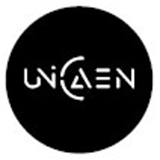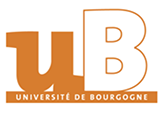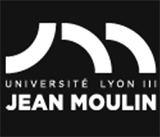Introduction
The University of Nantes is a public comprehensive university located in Nantes, France. Its history can be traced back to 1460. It is an important higher education and scientific research center in western France. It was selected into the French Excellence University Program with the Next project.
Overview
Student size: There are about 37,000 students, including about 4,200 international students.
Faculty and staff: The school has many excellent professors, researchers and various professional teaching staff to provide high-quality teaching and guidance for students, but the specific number is not specified.
History
Early development: It was founded by Bertrand Milon on April 4, 1460, with the support of Francis II, Duke of Brittany. Pope Pius II issued a papal bull to establish the university. On July 21 of the same year, Bishop Guillaume de Marestro of Nantes announced the new institution as a protector, and gave it the title of "University President" and donated 5,000 gold coins. On April 22, 1461, the Duke issued a formal charter and on October 11, the statutes were issued. At that time, Breton students accounted for a large proportion of French universities and were organized in a "national" form in these universities. As a "universal college", the Duke of Brittany University could teach traditional subjects such as art, theology, law and medicine, divided into five colleges.
Modern changes: At the beginning of the 18th century, the university entered a period of decline, and in 1735 the law department was transferred to Rennes. In 1793, the National Convention ordered the dissolution of all universities and colleges. On December 29, 1961, Decree No. 61-1519 was promulgated to re-establish the University of Nantes, which came into effect on January 1, 1962. Subsequently, the school continued to develop. On January 1, 2022, the original Université de Nantes was renamed Nantes Université, and several universities and research institutions in Nantes were merged to become a unique combination of institutions in Nantes.
Establishment time
Founded in 1460, re-established in 1961, officially put into operation in 1962, and completed the integration and renaming of institutions in 2022.
School strength
Teaching quality: Provides bachelor's-master's-doctoral degree education courses in various fields of knowledge and professional and technical majors, covering literature and humanities, science and technology, law, economics and management science, health care, engineering and many other disciplines. The curriculum is rich and diverse, focusing on the combination of theory and practice, and cultivating students' comprehensive literacy and professional ability.
Scientific research level: As a major higher education and scientific research center in western France, the school has 44 laboratories covering all fields of knowledge, with fruitful scientific research results. Since 1992, nearly 40 patents have been registered, and more than 20 high-tech enterprises have been incubated from various laboratories. Its five doctoral graduate schools have a total of 1,200 doctoral students, and doctoral students defend more than 200 doctoral dissertations each year.
Institutional Nature
Public University.
Educational Philosophy
Focus on cultivating students' innovative ability and interdisciplinary literacy, emphasizing the combination of research and teaching, and encouraging students to actively participate in scientific research projects and practical activities to cultivate professionals with global vision and social responsibility, so that students can better adapt to social development and workplace needs.
Adhering to an open and inclusive attitude, putting students at the center of attention, attaching importance to talent training and development, and committed to creating an open, innovative, and socially change-focused university model, actively promoting exchanges and cooperation between the school and society and the world.
Key laboratories and disciplines
Key laboratories: The school has 44 The laboratory covers all fields of knowledge, such as materials science, environmental science, life science, medicine and other disciplines, providing advanced research platforms and technical support for scientific research in related disciplines, promoting the development of disciplines and the transformation of scientific research results.
Key disciplines:
Literature and humanities: including linguistics, applied foreign languages, literature, philosophy, history, art history and archaeology, sociology, psychology and other majors, with high level and influence in language teaching and research, cultural research, social science research and other aspects.
Science and technology: covering mathematics, physics, chemistry, computer science, materials science, environmental science and other disciplines, among which materials science and other majors have outstanding research results in new energy, new materials and other fields.
Law: The law major has a long history, It has trained a large number of outstanding talents in the fields of legal theory, international law, and commercial law, and has provided many professionals for the French and even international legal circles.
Economics and Management Sciences: The School of Economics and Management offers a wealth of professional courses, including economics, management, marketing, accounting, etc., focusing on cultivating students' economic analysis and management practice capabilities, maintaining close ties with the business community, and providing students with good internship and employment opportunities.
Health Care: The School of Medicine, the School of Pharmaceutical Biology, the School of Stomatology, etc. are strong in medical education and scientific research. The medical major covers multiple fields such as clinical medicine, medical technology, health chemistry and biological sciences, and has trained a large number of professional talents for the medical and health industry.
Faculty
School of Social Sciences: Including Law and Political Science, IAE Nantes — Departments of Economics and Management, Administrative Preparation School, Sociology, etc.
Faculty of Health: covers medicine, dentistry, pharmacy, sports and sports technology, etc.
Faculty of Humanities: has departments of geography and planning, art and archaeological history, languages and foreign cultures, literature and languages, psychology, etc.
Faculty of Science and Technology: includes the Polytechnic Institute of the University of Nantes, Nantes Institute of Technology, Saint-Nazaire Institute of Technology, La Roche Institute of Technology, science and technology, etc.
Ranking
Ranked in the top 25 universities in France.
Entered the Times Higher Education World University Rankings in 2015.
Expenses
Tuition fees for public universities in France are borne by the government. Students only need to pay a registration fee, which is generally around 170-300 euros for undergraduate studies and around 200-400 euros for master's and doctoral studies.
Campus
Campus environment: The main campus is located in Nantes, the sixth largest city in France, and there are two satellite campuses in Saint-Nazaire and La Roche-sur-Yon. Nantes is a vibrant, culturally rich, economically developed and high-quality city, providing students with a good learning and living environment.
Teaching facilities: The school has modern teaching buildings, libraries, laboratories and other teaching facilities. The library has a rich collection of books and complete electronic resources, providing strong support for students' learning and research.
-

University of Angers
-

University of Caen Normandy
-

University of Bordeaux
-

Claude Bernard University Lyon 1
-

University of Burgundy
-

CY Cergy Paris University
-

Clermont Auvergne University
-

University of Artois
-

Jean Moulin University Lyon 3
-

University of Franche-Comté
-

Mesoamerican University
-

Istmo University
-

Mariano Galvez University of Guatemala
-

Regional University of Guatemala
-

Galileo University
-

Francisco Marroquín University
-

Rafael Landívar University
-

University of the Valley of Guatemala
-

University of San Carlos of Guatemala
-

Technological Institute of Tlaxcala Plateau
-

Golfo University
-

Technological University of South Sonora
-

Technological University of Huejotzingo
-

Tizimín Institute of Technology
-

Chilpancingo Institute of Technology

